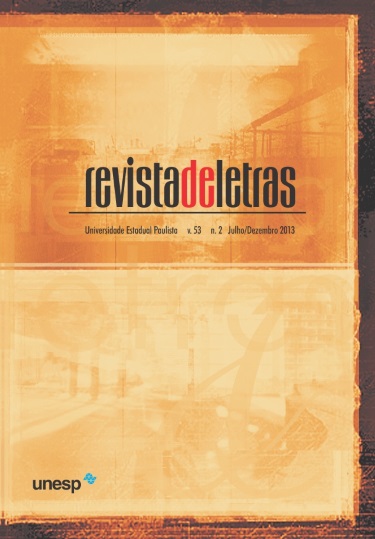The catharsis beyond Aristotle: terror and compassion in the romance-tragedy Crime and Punishment by Dostoyevsky
Keywords:
Dostoyevsky, Romance-tragedy, Catharsis, Crime and Punishment,Abstract
Fyodor M. Dostoyevsky (1861-1881) can not only be considered the father of the modern novel, according to Bakhtin, but also the responsible for creating a new narrative form called “romance-tragedy” by Vyatcheslav Ivanovich Ivanov (2007 apud COSTA, 2008). Considering this new genre as the union of techniques used in the modern novel with ancient tragedy and the dramatic traces contained in Dostoyevsky’s works, this article aims to analyze the effect of catharsis in the novel Crime and Punishment, published in 1866, in order to compare it with the design of purification of the feelings of terror and compassion raised by the drama, which was conceived by Aristotle.
Downloads
Published
Issue
Section
License
Os manuscritos aceitos e publicados são de propriedade da Revista de Letras. Os originais deverão ser acompanhados de documentos de transferência de direitos autorais contendo assinatura dos autores.
É vedada a submissão integral ou parcial do manuscrito a qualquer outro periódico.
A responsabilidade do conteúdo dos artigos é exclusiva dos autores.
É vedada a tradução para outro idioma sem a autorização escrita do Editor ouvida a Comissão Editorial.

